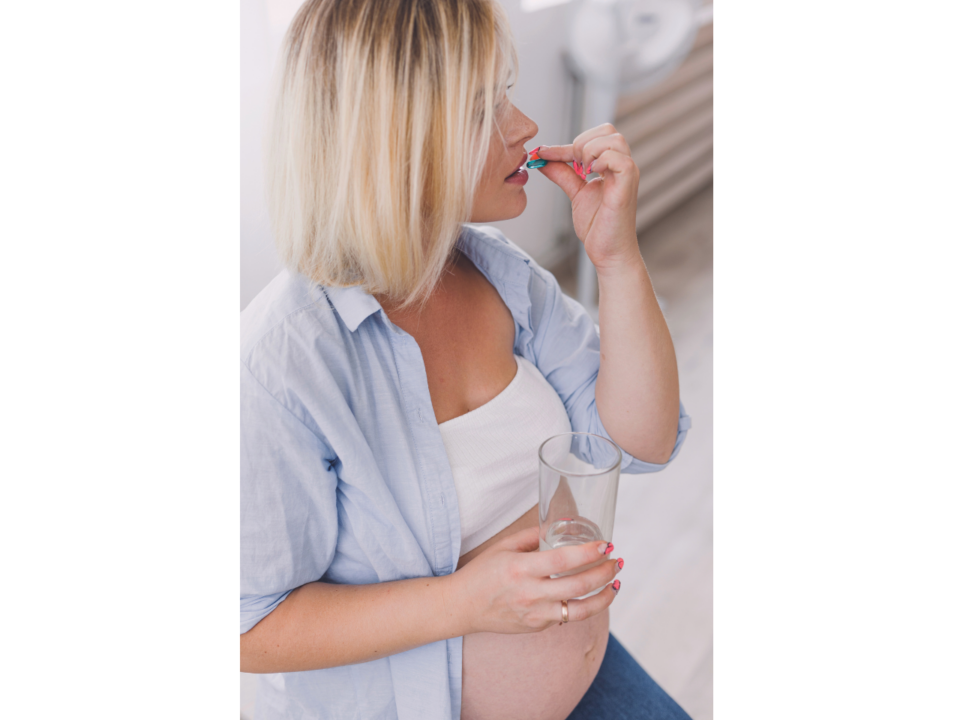“I was honestly scared to get pregnant one day because I was worried about having to stop my medication, but then it happened, so I had to face it head on,” says local mother, Sydney B. about her experience being pregnant and on her antidepressant medication. “I continued because the little research that had been done on the medication and pregnancy indicated that it wouldn’t hurt my baby and my OB agreed. My psychiatrist was also concerned that stopping would have a worse effect on me than continuing would on my baby, due to the pregnancy hormones.”
The anxiety of taking medication during pregnancy is shared by many women. I remember when I was pregnant for my first baby, feeling a rush of relief when my obstetrician recommended continuing with my antidepressant antianxiety medication.
Careful Consideration
“The safety of antidepressants during pregnancy is a careful risk benefit analysis,” shares Dr. Rene Bruno, a perinatal psychiatrist and Medical Director of Selected Psychiatric Services at Woman’s Hospital. “This is a discussion that should be had with your obstetrician or mental health provider.”
Until recently, there were no tests on pregnant women by the FDA. No medication is without risk, but Dr. Bruno also shares that with mental health medications, often the benefits outweigh the possible risk. “Untreated maternal mental illness comes with risk. Mental illness affects behavior. You may not eat well, may not sleep well, may smoke or drink. Depression and anxiety can affect behavior, which can affect the baby. There are studies that indicate that inadequately treated maternal mental illness can affect children into adulthood. It affects how genes are expressed and can affect development, learning, anxiety, and characteristics of ADHD.”
As a practical matter, most prescribers begin with pregnancy-safe drugs when prescribing to women of child-bearing age. Drugs in the SSRI category, selective serotonin reuptake inhibitors, are among the most studied medications and are considered relatively safe. Whatever medication you are taking, Dr. Bruno shares this warning, “Do not stop your antidepressant abruptly. This can worsen symptoms and can put women and their babies in danger. Fifty percent or more of pregnancies are unplanned. If you become pregnant, hold tight! Have a careful risk benefit discussion with your physician.”
Biopsychosocial Consideration
“Rarely, if ever, should a medication be given in isolation as the only intervention for depression and anxiety. We must consider the biopsychosocial factors. When treating depression and anxiety when pregnant, and always, these three components are vital. Bio refers to the medication; psycho refers to the psychological support, coping skills, and self care that a person has; social refers to a person’s support and connectedness to people. We are all complex beings, not just our biology. Medication should always go along with other supports,” explains Dr. Bruno.
Who is at Risk?
“Women are twice as likely to become depressed as men. Becoming pregnant is a considerable hormonal and biological change. It can be the most joyful time, but also the time when a woman is the most vulnerable,” Dr. Bruno shares. Having had two children myself, I can attest to that!
When it comes to the stigma of mental health care, Dr. Bruno shares that she thought that the overall society’s view is improving but is still not where it needs to be. When considering stigma, there are also racial, ethnic, cultural, familial, and religious influences.
Dr. Bruno encourages moms-to-be not to become complacent, not to think that because you have medication that all will be fine. Plan your biopsychosocial safety net, even if you feel ok. Dr. Bruno encourages preconception planning. Moms and moms-to-be can schedule a visit with their obstetrician or with Dr. Bruno, who encourages partners to be included in the visit. “Talk about the risks and benefits for you so that you can have the safest, healthiest pregnancy. You don’t have to wait until you are pregnant or postpartum and in distress. Careful planning may help to eliminate that distress.”
Mom Shares
“My baby is just fine! She is nine months and walking. She’s met all of her milestones.” –Sydney B.

